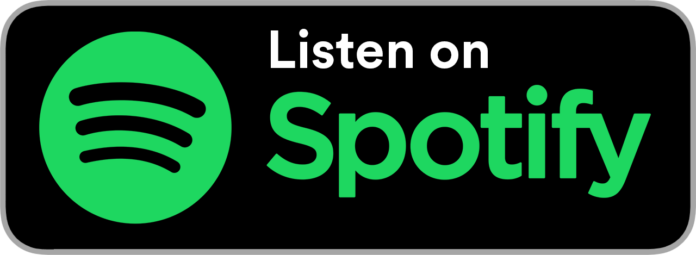“My heart is thumping through my chest. Can they hear it? How could they not? I’m sweating bullets. I hope it’s not showing through my shirt. What if they hate it? What if they hate me? What if my jokes fall flat? I don’t know if I can do this. Maybe I should just fake sick and bolt now…”

Is anybody else warm? – AFP/Getty Images
Chances are if you’ve ever stood in front of more than your own reflection while giving a presentation you’ve had at least one, if not all, of these thoughts. My earliest recollection of this internal struggle occurred in primary school when I received a failing grade on a book report. Not because I didn’t read the book, but because I was too intimidated to stand in front of my peers and discuss it. But I was still years away from the epic fail that would change the way I approach public speaking forever.
It was an upper-level Criminology course, and instead of a final exam, I had to give a presentation on a topic chosen by the professor. I did the basic prep work: researched the issue, wrote out the talking points, and even rehearsed them briefly. But, being a summer class, I also did some serious slacking off. The presentation was scheduled to last twenty minutes…it lasted four. I thought I knew the material, but thirty seconds into the presentation my mind went blank. I froze. I had no idea where to go next. I spent a few minutes rambling, sweating, and trying to get myself back on track but it was useless. I stood there in silence for what felt like an eternity before finally deciding to wrap it up after a grand total of four minutes.
I suppose the professor determined I must have been under extreme duress to put on such a shitshow because he graciously gave me another bite at the apple and saved my GPA in the process. But I never forgot that moment. Even thinking about it now makes me fidget in my seat.
“According to most studies, people’s number one fear is public speaking. Number two is death. Death is number two. Does that sound right? This means to the average person, if you go to a funeral, you’re better off in the casket than doing the eulogy.” – Jerry Seinfeld
Today, as a trial lawyer and lecturer, I frequently find myself standing in front of expectant faces. And, I’ll let you in on a little secret, even after years of doing this, I still get anxious. Every. Single. Time. It’s not that I don’t feel confident and capable, but speaking in public places me in a vulnerable position. Not only am I getting judged immediately (and sometimes quite literally) on my performance, there aren’t any second chances, do-overs, or edits. It either lands, or it doesn’t. That live performance factor is also the thrill of it. While that tinge of anxiety is always there, now, instead of letting it foil my plans, I choose to let it fuel me.
So, how do I flip the script on the anxiety of public speaking and make it work for me? In two words: Extreme Preparation.
“If I could just learn to control my nerves I’d be okay.” I hear that often. I have colleagues that have taken to popping beta blockers and Adderall like candy to silence the noise in their heads. I’m not hating on pharmaceuticals, some people genuinely need them, but for many of us, there’s a better way. My epic fail wasn’t because I was too nervous. Sure, I would have performed better if I hadn’t been in front of a room full of people, but that’s not why I failed. I failed because I wasn’t adequately prepared.
Through my years of practice, I developed the following strategies to combat the fear and anxiety associated with public speaking. If you commit to this approach, I guarantee you’ll be sharpening those speaking skills in no time.
1. Know What You’re Talking About
It doesn’t matter how nervous you are or how sweaty your palms are; if someone asks you what your phone number is you can recall it immediately. Same thing with your birthday. You know these things so well you barely need to think about them. That’s how Extreme Preparation works. I’m not talking simply memorizing material; I’m talking preparing to a level where you could pontificate on the subject while being chased by a bear.
2. Know It Front to Back and Inside Out
When you engage in Extreme Preparation, you don’t just know your subject in a linear progression. If you’ve memorized the material front to back, what happens when someone interrupts you with a silly quip or a question you weren’t ready to talk about until 10 minutes later? Now, your flow is disrupted, you’re disoriented, and you might not know where the hell to go next. I’ve left out the best five minutes of a presentation after a question yanked me past it and I forgot to make my way back. (It’s your presentation, though, so never be afraid to go with one of my favorite answers: “That’s a great question, and I’m going to circle back to it in just a moment.”)
Need a better system to organize and present your ideas? Here’s why I turn to Evernote for all that and more.
3. Chunking
One of the ways I prepare for possible disruptions is by chunking the presentation into multiple parts. Like chunking your phone number into three parts, chunking your presentation into distinct parts makes each part easier to recall on its own.
Obvious subtopics in a presentation make chunking easier but aren’t necessary. You can simply stake out 5-6 segments of the speech and create your own chunks, then attach a memory anchor to each chunk. If you’re not familiar with memory anchors, choose one distinct word or phrase, your “anchor,” that represents that chunk and calls it to mind. That way, if you find yourself off-track, all you need to do is glance at your list of anchors to find your way back.
I start by focusing on each of the chunks individually. Then, after preparing to present them in a linear fashion, I move the chunks around and force myself to spin the speech accordingly. I also like to look for smooth transitions between chunks and potential jokes I can slip in that jive with the shift in continuity. Preparing like this ensures the presentation will appear to flow smoothly no matter what happens.
4. Prepare for Distractions
Whether it be a talkative audience, a malfunctioning A/V system, or a celebrity in the front row, distractions are inevitable, so it’s best to be ready for them. My favorite way to prepare for distractions is to take a stroll around the city while giving my speech. I stop at crosswalks, nod at strangers, and try to avoid being flattened by a cab…all while maintaining the rhythm of the presentation. If you’re worried about strangers thinking you’re crazy, just pop in some earbuds and voilà! Now, you’re just a person walking around talking on the phone. Once you’re nailing the walk and talk, a quiet room will feel like easy street.
Pro tip: If you can manage it, try to get some time alone in the space where you’ll be giving your presentation. This allows you to get comfortable in the space before the crowd arrives. By the time I’m standing in front of a jury, you can bet I’ve given that speech to an empty jury box at least a dozen times.
I promise you, if you practice Extreme Preparation you cannot fail. I know that’s a bold statement to make, but I mean it. No matter how nervous you become, no matter how sidetracked you get, no matter how much you stutter, or how many attractive guys or girls are in the front row staring at you, the information will be right there on the tip of your tongue just waiting to fall into place.
As embarrassing as it was, that moment of failure in front of my classmates was one of the most important moments of my public speaking career. It motivates me to this day. I was procrastinating before a trial when a wave of anxiety crashed on me, and I imagined myself frozen in front of the jury 30 seconds into my closing argument. That was all it took to get me back on task. Though brutal in real time, failure is an integral part of the learning process and can be infinitely more motivating than the desire for success.
Another thing I can promise you, your Future Self will never blame you for being over prepared. Now, get out there and get after it.
You can find me on Twitter, Instagram, Facebook, & LinkedIn.
As always, you can find the podcast in the iTunes Store, Google Play, Stitcher Radio, and TuneIn. And, please, if you enjoy the show please hit that subscribe button and give us a 5-star rating in the iTunes store.
Are you thinking about taking the first step? Are you hesitating? Already moving toward your goals? Wherever you are right now, I want to hear about it. Send me a message HERE.









